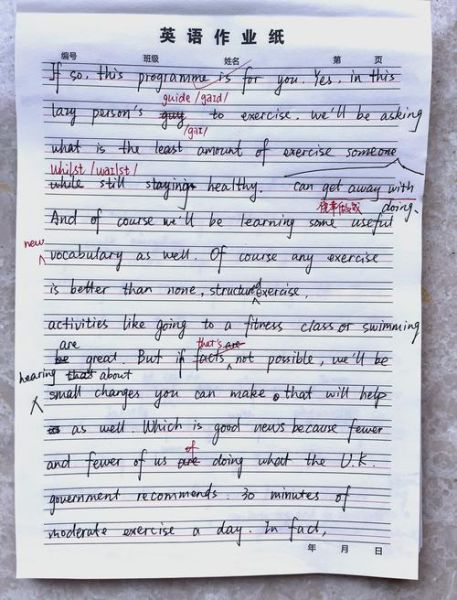The Journey to Weight Loss: Methods and Essential Vocabulary
Weight loss is a goal that many individuals strive for, either to improve their health, boost self-confidence, or enhance their quality of life. Attaining and maintaining a healthy weight requires understanding effective weight loss methods and being aware of the relevant vocabulary. In this article, we will explore various approaches to shed those extra pounds and delve into the key English words associated with weight loss.
Understanding Weight Loss
Before diving into the methods, it's crucial to grasp the fundamental concept of weight loss. At its core, weight loss occurs when the number of calories consumed is less than the number of calories expended. This creates what is known as a "caloric deficit," prompting the body to utilize stored fat for energy. However, achieving sustainable weight loss involves more than just calorie counting; it encompasses a balanced lifestyle, including proper nutrition, regular physical activity, and positive mental habits.
Effective Weight Loss Methods
Healthy Eating Habits
a. Balanced Diet: Consuming a variety of foods ensures you get essential nutrients while controlling calorie intake. Include lean proteins like chicken, fish, and tofu, which are low in fat and help build muscle. Complex carbohydrates such as whole grains, brown rice, and quinoa provide sustained energy and fiber. Don't forget to add colorful vegetables and fruits, rich in vitamins, minerals, and antioxidants.
Key Vocabulary: Balanced diet, lean protein, complex carbohydrates, fiber, vitamins, minerals, antioxidants
b. Portion Control: Be mindful of portion sizes to avoid overeating. Use smaller plates and bowls to trick your brain into feeling satisfied with less food. Pay attention to serving sizes on food labels and try not to go back for seconds.

Key Vocabulary: Portion control, serving size, overeating
c. Mindful Eating: Slow down while eating and savor each bite. This allows your body to register fullness cues, preventing you from eating out of habit or boredom. Put away distractions like TV or smartphones during meals to focus entirely on the eating experience.
Key Vocabulary: Mindful eating, fullness cues, distractions
Regular Physical Activity
a. Cardiovascular Exercise: Engage in activities that increase your heart rate and burn calories. Running, cycling, swimming, and brisk walking are excellent examples. Aim for at least 150 minutes of moderate-intensity cardio each week, or 75 minutes of vigorous-intensity exercise.
Key Vocabulary: Cardiovascular exercise, heart rate, moderate-intensity, vigorous-intensity
b. Strength Training: Incorporate resistance exercises to build muscle mass. Muscle tissue burns more calories at rest compared to fat tissue, thus boosting your metabolism. Use weights, resistance bands, or bodyweight exercises like push-ups, squats, and lunges.
Key Vocabulary: Strength training, resistance exercises, muscle mass, metabolism
c. Consistency: Make physical activity a regular part of your routine. Find activities you enjoy so that exercising becomes something you look forward to rather than a chore.
Key Vocabulary: Consistency, routine, enjoyment
Lifestyle Modifications
a. Adequate Sleep: Poor sleep can disrupt hormonal balance and increase appetite, especially for high-calorie foods. Aim for 7-9 hours of quality sleep per night by establishing a relaxing bedtime routine and creating a comfortable sleep environment.
Key Vocabulary: Quality sleep, hormonal balance, appetite, bedtime routine
b. Stress Management: Chronic stress can lead to emotional eating and weight gain. Practice stress-reducing techniques such as meditation, deep breathing exercises, yoga, or hobbies that bring joy and relaxation.
Key Vocabulary: Stress management, emotional eating, meditation, deep breathing, relaxation techniques
Tracking Your Progress
Keeping track of your weight loss journey helps you stay motivated and make necessary adjustments. Here are some useful ways to monitor your progress:
a. Body Weight: Weigh yourself regularly (once a week is ideal) under consistent conditions (same time of day, after using the bathroom, without clothes). Record your weight in a journal or app to spot trends over time.
Key Vocabulary: Body weight, tracking, consistency, journal
b. Body Measurements: Measure your waist, hips, thighs, and arms periodically to see if your inches are decreasing even if the scale doesn't budge much. This indicates that you're losing fat and gaining muscle.
Key Vocabulary: Body measurements, inches, fat loss, muscle gain
c. Non-Scale Victories (NSVs): Pay attention to other positive changes beyond the numbers, such as increased energy levels, better sleep, improved mood, and enhanced physical fitness. These NSVs reflect the overall benefits of weight loss.
Key Vocabulary: Non-scale victories, energy levels, sleep quality, mood improvement, physical fitness
Overcoming Challenges
Weight loss is not always a smooth ride. There will be obstacles along the way, but recognizing them early can help you overcome them.
a. Plateaus: It's normal to hit plateaus where weight loss slows down or stalls. To break through a plateau, adjust your diet or exercise routine by increasing intensity, trying new activities, or tweaking calorie intake.
Key Vocabulary: Plateaus, adjusting diet, exercise routine, intensity
b. Cravings: Intense desires for certain foods can derail your progress. When cravings strike, try healthier alternatives (such as fruit instead of candy), drink water, or distract yourself with an activity until the urge passes.
Key Vocabulary: Cravings, healthier alternatives, distracting oneself
c. Social Situations: Social events often revolve around food, making it challenging to stick to your diet. Plan ahead by eating a satisfying meal beforehand or bringing your own healthy dish to share. Politely decline offers of unhealthy snacks and drinks, focusing on social interactions rather than food consumption.
Key Vocabulary: Social situations, planning ahead, healthy dish, social interaction
In conclusion, weight loss is a multifaceted endeavor that combines healthy eating habits, regular physical activity, and lifestyle modifications. By understanding and incorporating these methods, along with mastering the essential vocabulary related to weight loss, you can embark on a successful journey towards achieving and maintaining a healthier weight. Remember, patience and persistence are key; celebrate small victories along the way and stay committed to your goals for long-term success.
本文来自作者[桐嫣]投稿,不代表智博立场,如若转载,请注明出处:https://zhibor.cn/changshi/202503-25244.html


评论列表(4条)
我是智博的签约作者“桐嫣”!
希望本篇文章《减肥的方法英语 减肥的英语单词》能对你有所帮助!
本站[智博]内容主要涵盖:知识科普
本文概览:The Journey to Weight Loss: Methods and Essential VocabularyWeight loss is a goal that m...